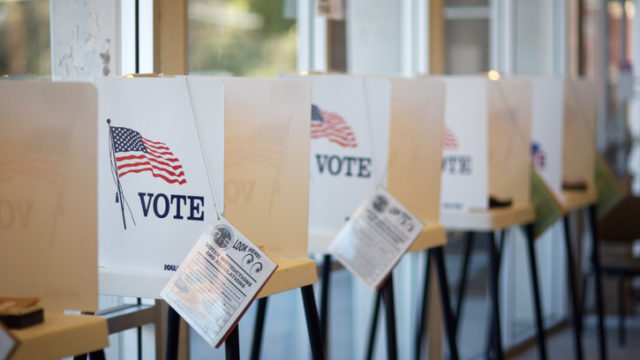This post was written by Jennifer Wilson, Program and Policy Director from League of Women Voters New York as part of our PowHer the Vote 2017 campaign.
After the 2016 Presidential election, men and women took to the streets to march in support of the rights of women, immigrants, minorities, and the LGBTQ community. These marchers feared that new policies at the federal level could have a negative impact on already marginalized populations. While the federal government does affect many facets of government administration, it is not the only level of government that can affect us. Local legislators make decisions that affect our daily lives and local communities. These local elected officials can pass new policies that either empower citizens or disenfranchise them.
Local government has a direct role on our everyday lives. Our county executive, city council members, and town supervisors, make decisions that affect how our localities operate, how they are funded, and what policies will be implemented locally. Although many “big picture” policies, like reproductive choice and immigration, are controlled by the federal government, there are certain safeguards local governments can put in place to help ensure marginalized populations are protected.
On October 31, 2017, a new law that bans New York City employers from asking applicants about their salary history will go in effect. This reform has been working its way through our state legislature and Congress but has not had enough support to pass. Banning salary history is one of many reforms that can be passed by a city or county to protect their local workforce. Other counties have considered the reform but have not taken action to put this policy in place.
New York City has also passed legislation within their city council to ensure all city facilities have gender neutral bathroom and locker room access. In Buffalo, the School Board passed a reform to mandate all schools allow students to use the restroom or locker room of the gender they identify with. The Buffalo reform requires that parents’ consent to the identification and provide proof of the student’s’ gender identity through written record. This policy was entirely decided by the Buffalo School Board; a board composed of local elected officials. Other localities have passed reforms to prohibit discrimination in the form of public employment, private employment, public accommodations, education and/or housing based on sexual orientation. Six cities and three counties in New York State also explicitly prohibit discrimination on the basis of gender identity or expression.
Cities throughout New York State have also taken steps to protect immigrants by declaring themselves sanctuary cities. These cities and counties have laws, ordinances, regulations, resolutions, policies, or other practices that obstruct immigration enforcement and shield individuals from ICE. Currently 16 localities in New York State have declared themselves as sanctuary cities. The decision to institute a policy prohibiting ICE from detaining immigrants is made not by federal or state officials, but instead by local county and city officials.
Each locality in New York State also maintains its own local budget. This budget can cover any number of local functions and services. New York State counties provide critical services to their constituents. Counties fund victim services for victims of sexual and physical violence as well as public defenders. After school programs and public childcare are also funded in part by local governments. The county legislature decides just how much money each of these services receives and where those funds will come from (ie. tax revenue, grants, state reimbursement, etc.)
Local officials are critically important to the function and preservation of our communities. On November 7th, New Yorkers will be voting on their local elected officials including county officials, town supervisors, city council members, mayors, and local judges. The League of Women Voters is a non-partisan organization with 50 Local Leagues throughout New York State. We provide non-partisan election information for all candidates. Our local Leagues also host candidate debates and forums.
Get educated on who will be on your ballot by visiting www.vote411.org. Information on candidates throughout the state will be live in early October. At Vote411.org you can also find a calendar of upcoming debates and forums in New York.
To find a local League near you visit: http://www.lwvny.org/LLresources/LLcontacts.html
For more information on your local elections visit: https://www.elections.ny.gov/


